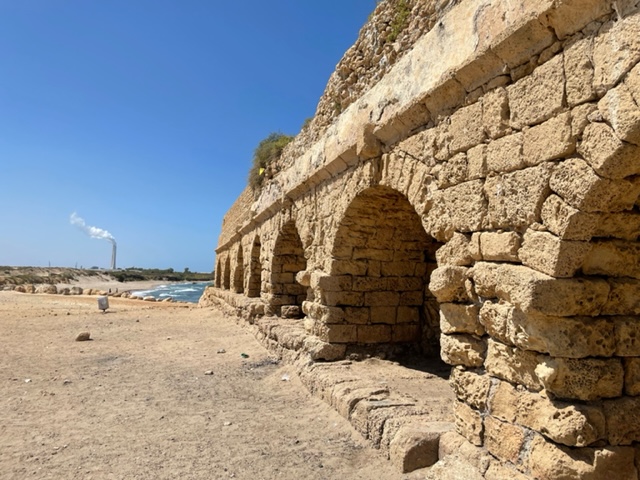
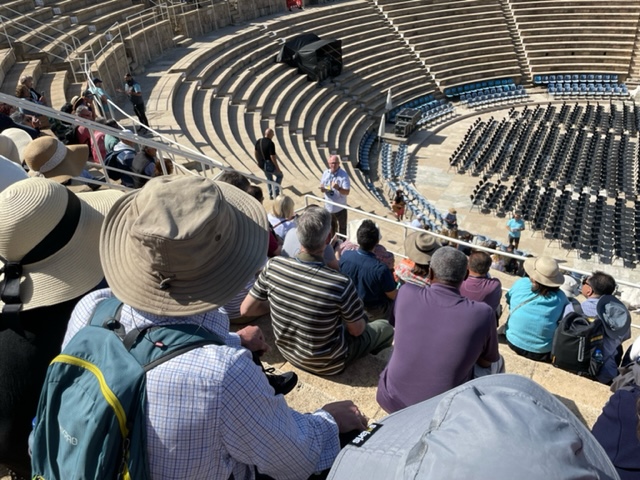
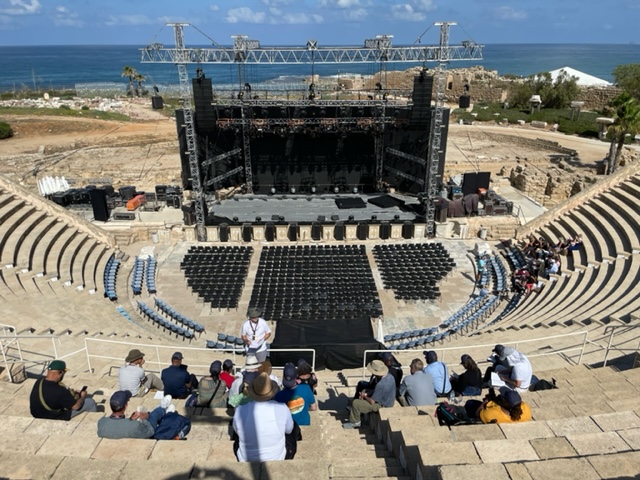
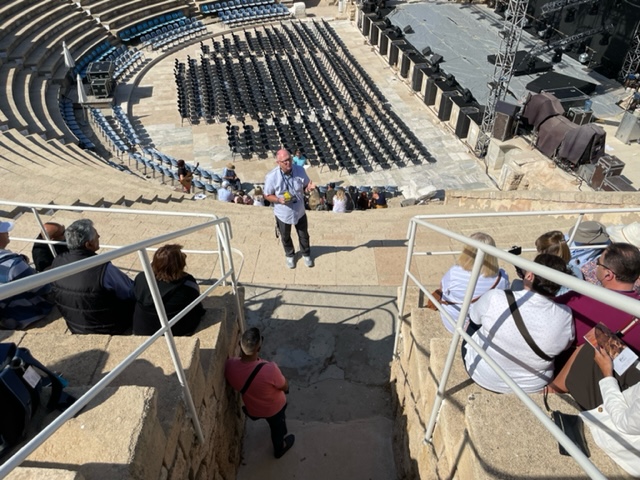
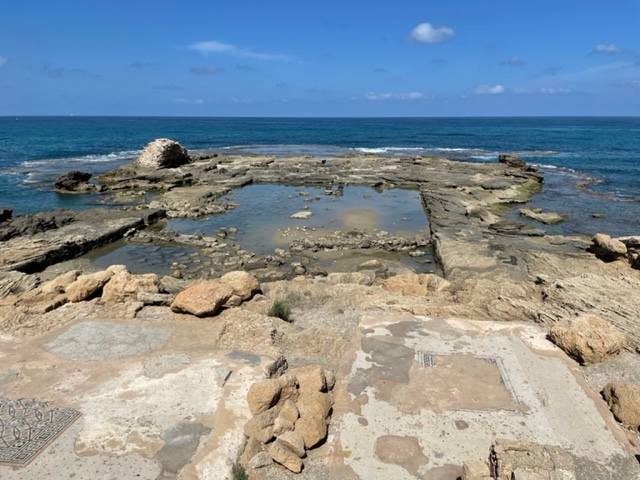
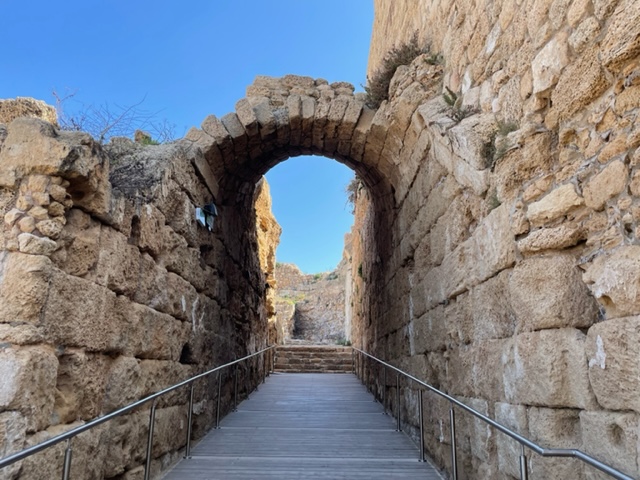

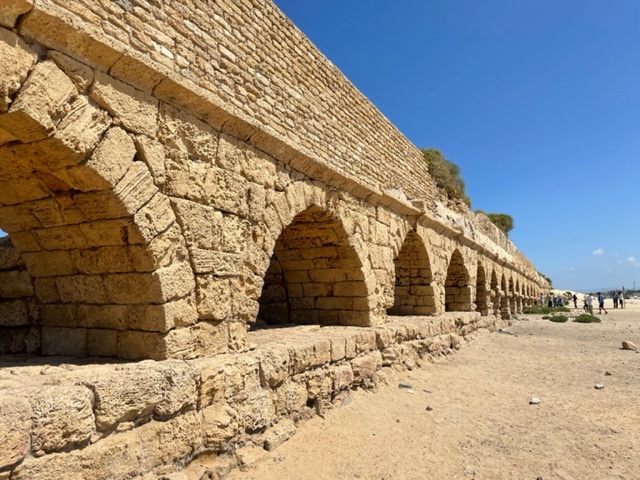

Caesarea
Caesarea is located on the Mediterranean coast about midway between the city of Haifa and Tel Aviv. The city itself was built by Herod the Great and became the capital of the Roman government in Palestine. Its palace, theater, hippodrome, aqueduct and circular breakwater were famous. Caesarea was also the home of the godly Cornelius whose prayers were answered in the remarkable incidents relative to Peter’s vision on the housetop at Joppa (Acts 10:1, 5 & 6).
Here the opening of the door of the gospel to the Gentiles was manifest by the outpouring of the Holy Spirit as on the day of Pentecost. Herod Agrippa died at Caesarea, being “eaten of worms” (Acts 12:23).
The city is mentioned on a number of occasions in relation to the experiences of the Apostle Paul. He sailed from here to Tarsus after his first visit to Jerusalem (Acts 9:30). At the close of his second missionary journey Paul landed at Caesarea and greeted the church (Acts 18:22). And when making his final journey to the Holy City, Paul and his company landed at Caesarea where he stayed a number of days in the house of Phillip the evangelist (Acts 21:8). After Paul was taken into custody in Jerusalem it was discovered that forty men were determined to kill him (Acts 23). Three times he made his defense in outstanding addresses while here.
Excavations and important findings at Caesarea have been quite extensive. These have uncovered the great aqueduct along the sea shore which brought water to the city from the mountains some 12 miles away.
The imposing ruins of the Crusader fortifications are very impressive as is the Roman theater, used now each year for musical productions.
About 70 miles from Jerusalem, from which the soldiers brought Paul in two days, due to the threat on his life and his appeal to Caesar, (Acts 23:31–32) by way of Antipatris. It had a harbor 300 yards across, and vast breakwater, (the ruins still remains, and on the top of this breakwall the remains of a tower used for a light house, building fires on it at night to guide ships into port) and a temple with colossal statues sacred to Caesar and to Rome.
Joppa and Dora had been previously the only harbors of Palestine, until the Romans built the port at Caesarea.
It was the Roman procurators’ (Felix, Festus, etc.) official residence; the Herodian kings also kept court there.
The military head quarters of the province were fixed there.
Gentiles outnumbered Jews in it; and in the synagogue accordingly the Old Testament was read in Greek. An outbreak between Jews and Greeks was one of the first movements in the great Jewish war. Vespasian was declared emperor there; he made it a Roman colony, with the Italian rights.
It was the home of Eusebius, the scene of some of Origen’s labors, and the birthplace of Procopius. Now a desolate ruin, called Kaisariyeh; S. of the mediaeval town is the great earthwork with its surrounding ditch, and a stone theater within, which Josephus alludes to as an amphitheater.



